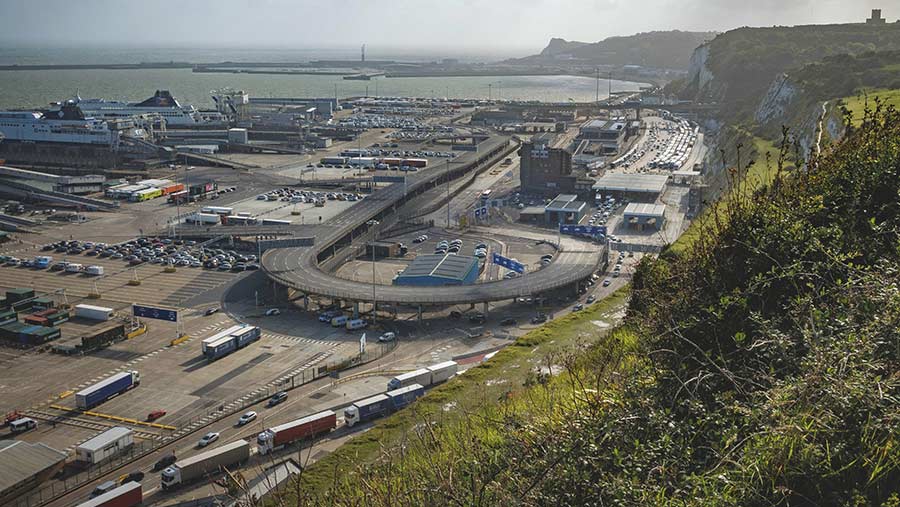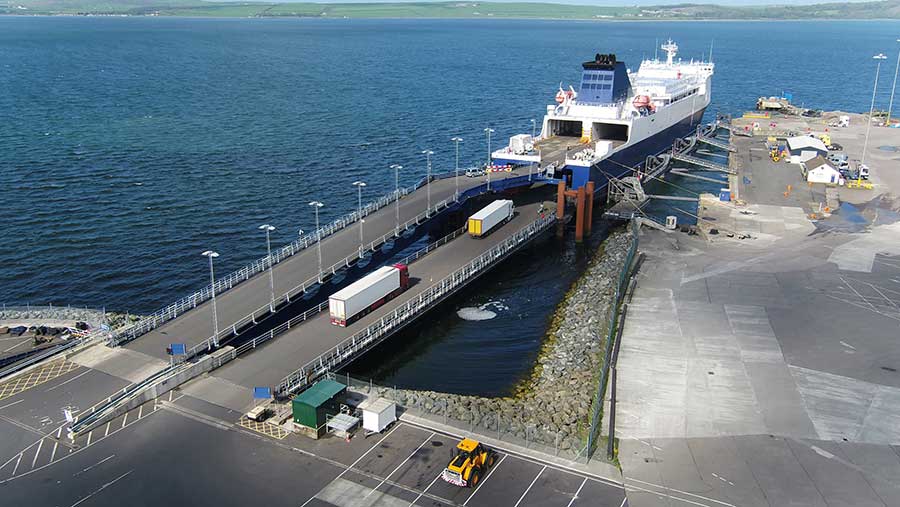MPs slam government inaction on post-Brexit trade
 © Mathieu/Adobe Stock
© Mathieu/Adobe Stock Glaring holes in the government’s post-Brexit livestock export policy have put the UK at a competitive disadvantage, a cross-party group of MPs has claimed.
The criticism was levelled at the government in a report – Moving Animals Across Borders – by the Environment, Food and Rural Affairs (Efra) select committee.
It accused the government of adopting a low-priority approach to implementing the policy and infrastructure needed to ensure trade continued once the UK left the EU.
Committee MPs highlighted the continuing lack of UK Border Control Posts (BCP) months after the original construction deadline in July.
Without BCPs, the requirement to check incoming stock has been pushed back until March 2022, allowing animals to move freely into the UK, the report noted.
See also: Temporary visas ‘desperately needed’ to tackle pig backlogs
In contrast, seaports in northern Europe had opted to ban live animal imports from the UK until BCPs were constructed.
This has created a trade asymmetry threatening exporters’ livelihoods and increased UK biosecurity risks, the report said.
It suggested that welfare could also be compromised while there were no BCPs in northern France and the Netherlands.
Proposed routes for stock through Northern Ireland, the Republic and on to Spain raised concerns about journey times and animal welfare.
Heel dragging
Committee chairman Neil Parish MP said that cross-border sales of British breeding stock had been an important export trade before Brexit, but it “has shrunk to nothing while the government drags its heels setting up the border controls the industry needs,” he said.
Mr Parish called on the government to “accept the scale of the problems and act urgently to address the threats to British businesses, animal welfare and biosecurity”, adding that the issue, and related problems with equines, highlighted “glaring holes in the government’s current systems”.
“The solutions are evident and ready, but the government seems unprepared to press go,” he added.
Pragmatic approach
Along with the criticisms, the MPs offered solutions to the crisis and urged government to adopt a pragmatic approach during EU negotiations to push them through.
“Ensuring that border controls are operational at both UK and EU borders no later than March 2022 would bring about swift improvements,” the report suggested.
Welfare concerns over journey times could be lessened if more local markets for British meat were established using a network of small- and medium-sized abattoirs, the report concluded.
This suggestion was welcomed by the Sustainable Food Trust, which has campaigned to retain a viable network of local abattoirs.
Defra should take action within six months to protect commercially viable, small- and medium-sized abattoirs as a national strategic asset, a trust spokeswoman said.
These businesses are disproportionately affected by red tape and should be supported through the Future Farming Resilience Fund, she said.
BCP delays

Cairnryan port © Peter/Adobe Stock
Meanwhile, difficulties over construction timetables and funding for BCPs continue. In Scotland construction of a BCP at Cairnryan has been put on hold while ministers wait for answers over funding from the UK government.
Rural affairs secretary Mairi Gougeon said work on the BCP started last autumn to enable livestock checks on the Loch Ryan ferry from Belfast and Larne.
But answers have not been forthcoming.
“Over the past few months, we have sought assurances from the UK government regarding the funding for the Cairnryan BCP,” Ms Gougeon said.
“We are pressing the UK government to cover the costs of the border facility, including the BCP under its EU-Exit commitments.
“The UK government has declined to provide us with the necessary assurances. With some major uncertainties to be resolved, we have made the decision to pause elements of this project,” she said.
